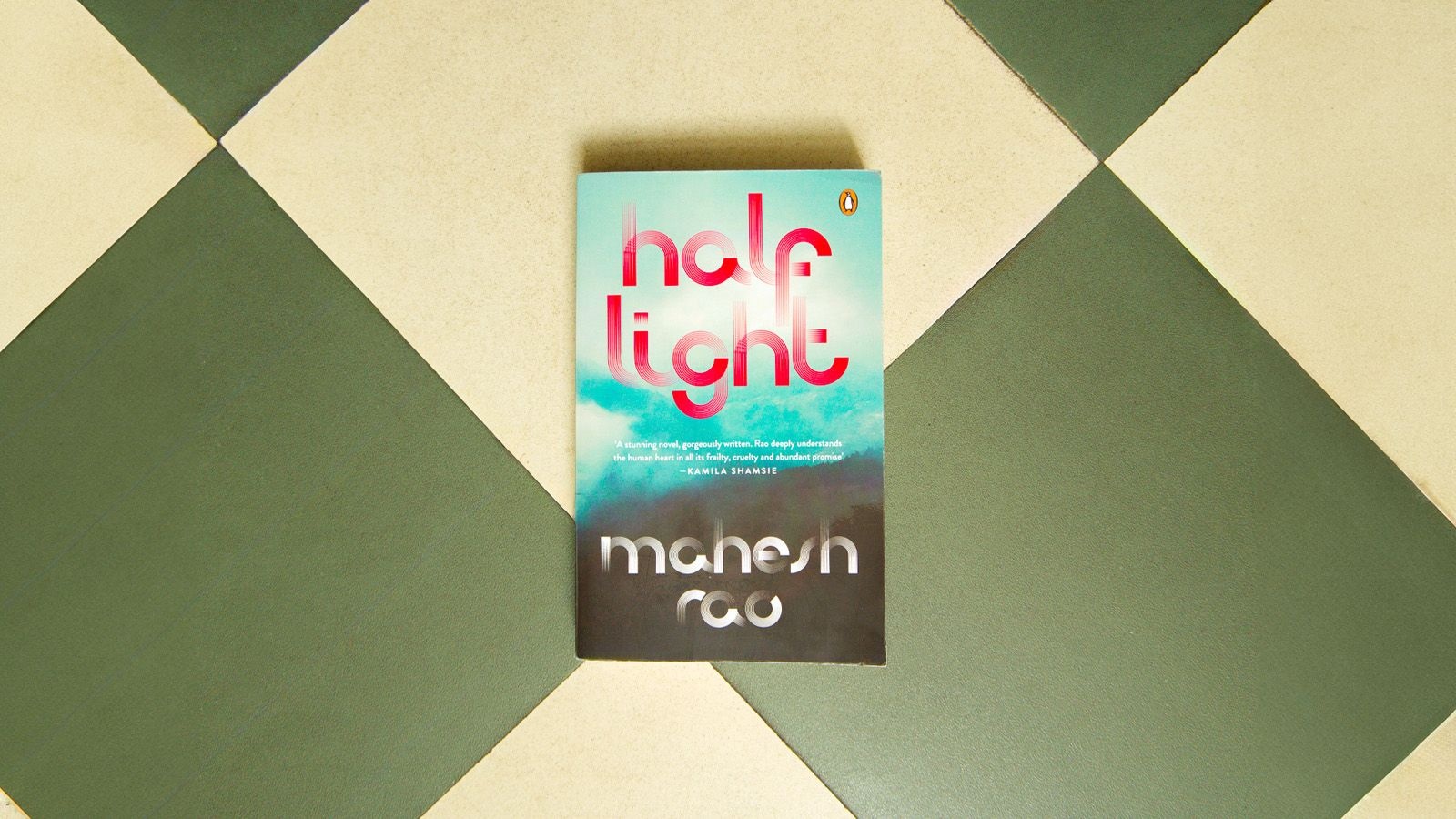Join our Instagram channel to discuss our book of the month, Half Light by Mahesh Rao, as we read it. From every-thought-you-had-while-reading to exclusive notes from the author, there’s a lot to unpack here.
For our November Nod Book Club title, we shifted gears to handpick a novel that’s a little different from what we’ve done so far. In the past months, we’ve explored a sci-fiction novel, a heartwarming read about an octopus, a modern mystery, and a workplace dramedy, now it’s time for a story that’s equal parts tender and revealing. It is author Mahesh Rao’s newest title, Half Light, out on Penguin Random House India. Told from alternating perspectives of its two protagonists, Pavan and Neville, the story revolves around two queer men from very different socio-economic backgrounds and ultimately leads up to the pivotal moment in India’s recent history—the decriminalisation of Section 377 in 2018.
So, what is so special about Half Light?
The novel opens in Darjeeling in the year 2014, with 18-year-old Neville, on vacation with his mum and pseudo-aunt at the dubious-sounding Golden Peaks hotel, where our second protagonist, Pavan works. Stranded at the hotel due to road closures, Neville, furtively pursues a flirtation with Pavan that soon turns into loaded glances and assignations in empty hotel rooms. At first glance the novel may seem like a romance, but it’s really about the experiences of two people who are stark opposites—each with their own baggage, personalities, opportunities and dreams. Neville is bold, carefree, younger than Pavan but more experienced in exploring his sexuality, courtesy secret hookups and some successful Grindr dates in his home city of Mumbai. Pavan is from a “a hard-baked village,” a diligent employee, living a lonely existence, and Neville’s appearance opens up a new world for him, but also makes him desperate to avoid detection. They do have one thing in common: a desire to keep their sexuality under wraps, from family as well as their co-workers. Then, a shocking incident occurs, the road opens, and the very next day Neville leaves the hotel—the two part ways, only to meet again in Mumbai, four years later.
This time there is a subtle change in the dynamics of their relationship. Pavan has a better job, a space to call his own in Mumbai, while Neville remains adrift, with no career to speak of. This is also the point in the novel where the narrative subtly offers vignettes from their independent lives, different yet similar in their shadowy secrets. The second part of the book is set in the year 2018, preceding India’s decriminalisation of homosexuality, which infuses a note of ‘half life’ and hopefulness.
Why should I pick it?
Rao’s fourth book and third novel offers readers an introspective read that is told through two different perspectives and comes alive with its back-and-forth narrative swing. There’s gloom, there’s anger, there’s shame, but the book is also suffused with the author’s wry humour, satirical wit—something his followers on Instagram may be familiar with through his tightly curated memes.
Through the two leads, the book offers a commentary on class, privilege and sexual experience in India. It is a vivid picture of their inner lives set against the backdrop of their sexuality and its place in their world. Each alternating chapter tells the character’s story with care. You can feel Pavan’s fear and anxiety to build a better life and the internalised shame that he’s trying to overcome. Neville’s frustration with his mother and his recklessness evident in his inability to share his real self with those closest to him. But there’s also joy in the little stories, one of an empathetic manager protecting her employee and keeping a secret, another, a dinner that turns out to be an awkward arranged marriage interview.
Tell me a little about the author
Mahesh Rao grew up in Nairobi, Kenya. He has worked as a lawyer, academic researcher and bookseller. His debut novel, The Smoke Is Rising, won the Tata First Book Award for fiction and was shortlisted for the Shakti Bhatt First Book Prize, the Crossword Book Award and the Guardian’s Not the Booker Prize. His short fiction has been shortlisted for numerous awards, including the Commonwealth Short Story Prize and the Bridport Prize. Mahesh has written for the New York Times, The Baffler, Prospect and Elle. He lives most of the year in Mysore, India.




